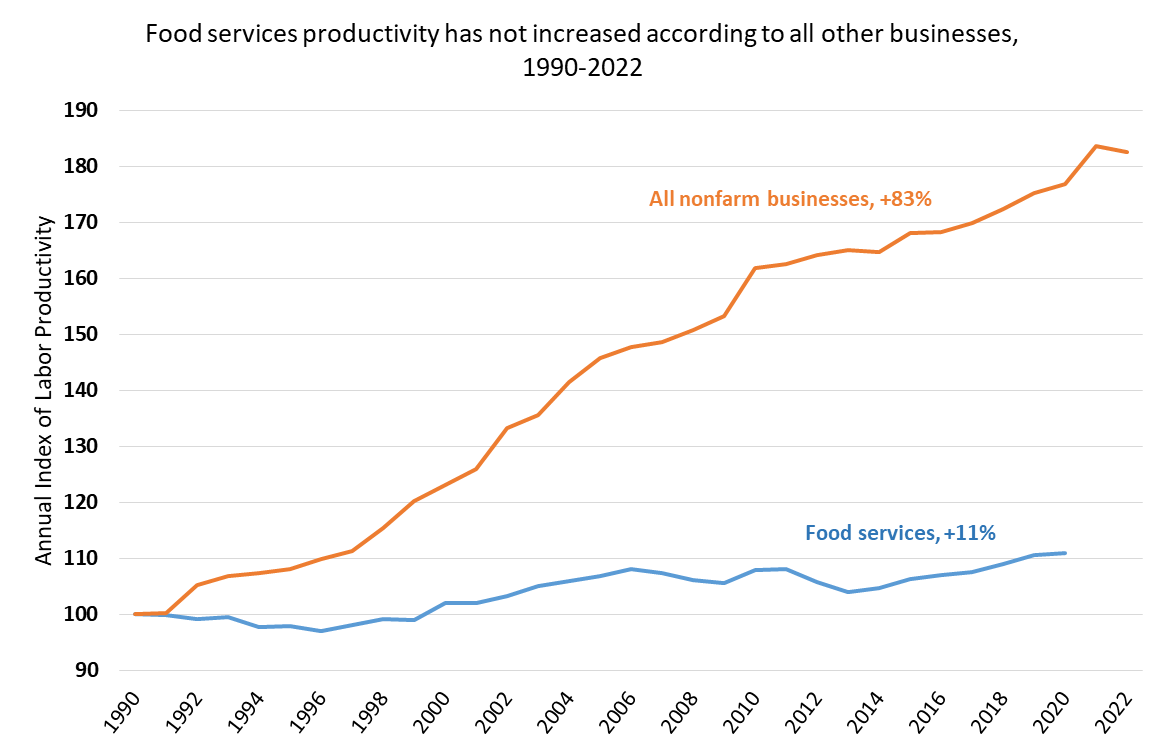Surrounded by a multitude of evidence that raising the federal minimum wage to $15 is an irresponsible, job-killing idea, some politicians seem to hold onto any argument they can find in favor of dramatic wage increases.
One such idea is the federal minimum wage should be tied to labor productivity rates. Prominent Democrats including Sen. Elizabeth Warren and Rep. Alexandria Ocasio-Cortez and other activists have suggested the federal minimum wage be raised to $22 per hour or more to match rises in productivity in the last decade.
That may sound appealing, until productivity rates decline.
This month, the Bureau of Labor Statistics (BLS) released its data on labor productivity in the first quarter of 2022 – and called it “the largest decline in quarterly productivity since the third quarter of 1947.” Labor productivity is tied to various industry and economic factors, and therefore can fluctuate depending on economic cycle conditions.
This one-size-fits-all productivity argument doesn’t make much sense in reality, and the calculation done by Warren and others is misleading.
Labor productivity nationwide in all industries has grown substantially over the last several decades (83% since 1990), largely due to automation and technology advancement such as computer applications.
On the other hand, the food services industry employs the majority (59%) of minimum wage earners, and yet labor productivity in these industries has been much more stagnant, given their inherent human labor intensive properties.

In reality, the labor productivity of the food services industry employing the majority of minimum wage earners has only increased by 5% since 2009, when the federal minimum wage was last raised up to its current $7.25 hourly rate. If we took Warren and Ocasio-Cortez’s advice back then, the adjusted value today would only equal about $7.62 per hour – not $22.
Based on the trends of the last three decades, there is no precedent for raising minimum wage mandates anywhere in the double digits, let alone Warren’s whopping $22 per hour figure. A recent survey of American economists found that in addition to a majority opposing a $15 federal minimum wage, 43% believe it should be set at or below the current rate of $7.25 per hour.
Why? The bulk of economic evidence shows steep minimum wage hikes squeeze employers by drastically driving up operation costs, which forces them to reduce jobs and hours at their businesses.
When employers can raise wages on their own according to their operation structures, employees can experience higher wages that stick.
Lawmakers should listen to the economists instead of trying to tie the federal minimum wage to unrelated, unrealistic trends.
